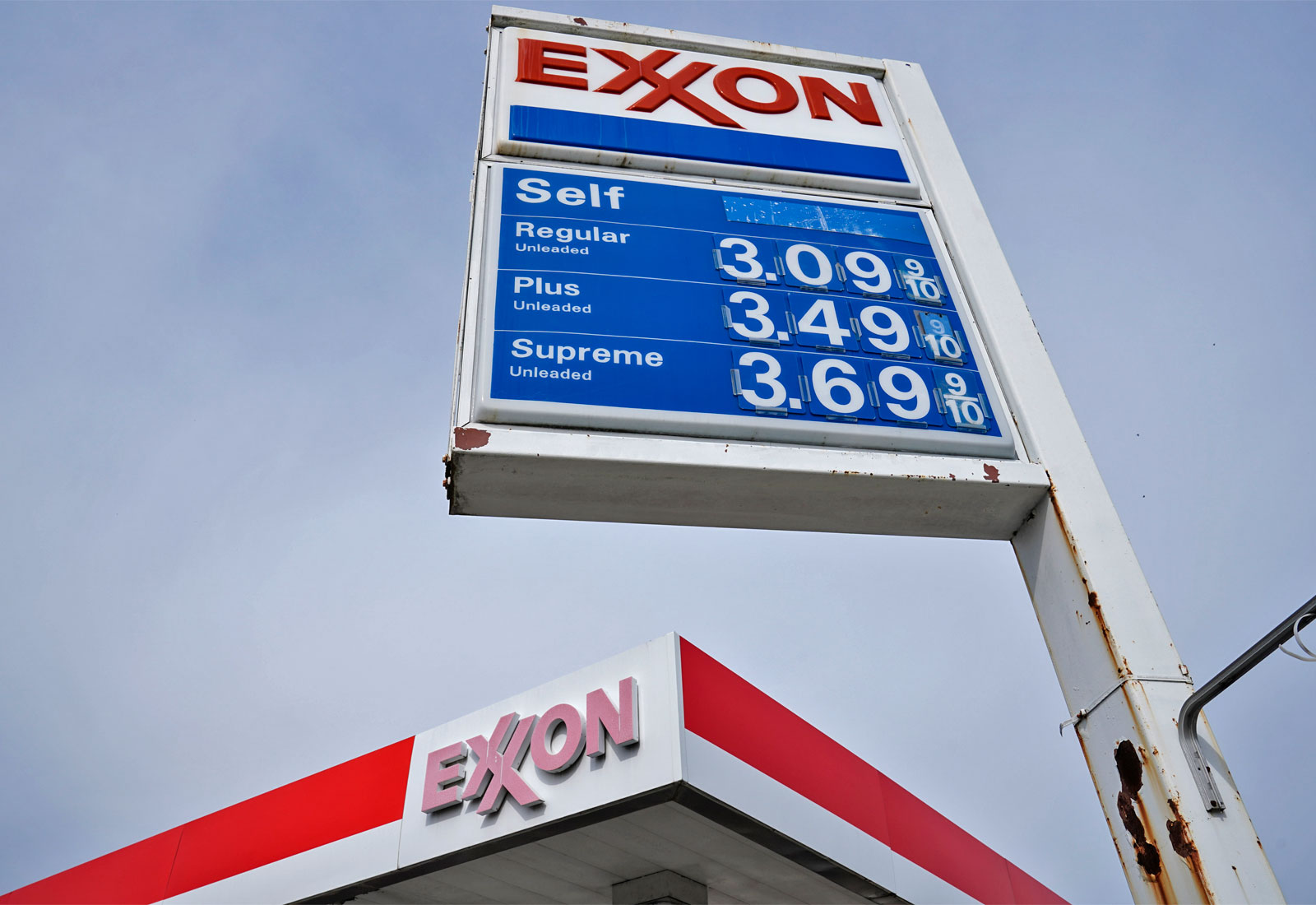In an attempt to respond to a volcanic eruption of discourse around systemic racism and police brutality, the U.S. Chamber of Commerce masqueraded in a modern version of blackface.
Roughly a month after the murder of George Floyd last year, the nation’s leading business lobby held a national town hall on inequality with marquee names such as basketball legend Kareem Abdul-Jabbar, television host Gayle King, and Howard University President Wayne Frederick. A couple weeks later, in an op-ed, Chamber President Suzanne Clark pledged to put the “collective muscle of American business behind an urgent nationwide push for equality of opportunity.”
The muscle came nowhere close to where the lobby’s mouth was.
As I wrote last summer, the town hall was a cruel mockery, especially as viewed through the lens of the health of Black and brown communities nationwide – and the Chamber’s contributions to that plight. After all, the chamber’s top known funders have included megapolluters Chevron and Dow. And it had opposed most climate change and environmental measures enacted by the Obama administration, cheered on most of the rollbacks of the Trump administration, and supported a host of environmentally regressive Republican senatorial candidates in their elections or reelections.
Since the Biden administration began, the chamber has only doubled down on backing policies that impede the fight against climate change, abetting companies whose activities imprison people of color in clouds of fossil fuel pollution. Many of the same politicians the Chamber backed in 2020 also happen to be pushing for voting rights restrictions that experts say will primarily suppress the voices of people of color – hardly a step toward the equality Clark promised to fight for.
More recently, the Chamber’s vigorous anti-climate agenda has involved trying to water down the clean energy standard included in Democrats’ $3.5 trillion reconciliation plan. The lobby sent a letter to congressional committees this week, according to the Washington Examiner, calling Biden’s timeline for decarbonizing the power sector unrealistic and suggesting that natural gas be considered partially compliant with the standard.
Perhaps its most staunch opposition is to a push by progressives to force corporations to disclose to shareholders the contributions a firm’s current operations have to climate change – and any efforts to reduce them. The effect of the warming climate on the bottom line of the economy and government budgets is already being felt in the exponential increase over the last half century of hurricanes, wildfires, and severe storms racking up billions of dollars in damages. Portfolios directly tied to the fossil fuel industry are at particular risk – the more that nations invest in renewable energy, the greater the chance that coal, oil, and gas infrastructure would become so-called “stranded assets,” reaching obsolesence or falling out of use before its time.
A Financial Times analysis last year identified $900 billion worth of potential stranded assets in the fossil fuel industry, adding that one third of the current value of the top oil and gas companies would “evaporate” if nations engaged in a concerted effort to fight climate change. Holding global temperatures to 2 degrees Celsius (3.6 degrees Fahrenheit) would require leaving 59 percent of fossil fuel reserves in the ground. An even more aggressive effort of limiting the rise to 1.5 C (2.7 F) would leave more than 80 percent in the ground.
The pressure to slow oil extraction compelled the Biden administration to issue an executive order in May mandating that federal agencies assess climate risk to government operations and across the economy. “The failure of financial institutions to appropriately and adequately account for and measure these physical and transition risks threatens the competitiveness of U.S. companies and markets, the life savings and pensions of U.S. workers and families, and the ability of U.S. financial institutions to serve communities,” the order said.
Biden himself cannot directly order disclosures from corporations. But he can task federal agencies with devising regulations that go beyond the current system of voluntary disclosures from fossil fuel companies. The oil and gas industry’s chief lobbying arm, the American Petroleum Institute, in the face of growing public and investor pressure, last month issued voluntary greenhouse gas reduction guidelines. Such nonbinding prescriptions are laughable on their face given the industry’s opposition to the Obama administration’s Clean Power Plan (and praise for the Trump administration’s rollback of it).
Part and parcel of getting away from fossil fuels is ameliorating environmental injustice. Many studies show how Black and Latino people disproportionately live close to pollution from fossil fuel facilities, waste sites, and transportation exhaust. While White Americans are the disproportionate source of fossil fuel particulate emissions via their outsize consumption of goods and services, Black and brown people disproportionately breathe them in.
Biden’s executive order acknowledges this dichotomy, calling for the federal government to identify areas where investment in reaching net-zero emissions advances “economic opportunity, worker empowerment, and environmental mitigation, especially in disadvantaged communities and communities of color.”
Like Biden, House Democrats recently took action regarding climate-risk disclosures, passing a bill requiring public companies to report environmental, social, and governance metrics to shareholders. It barely passed by a 215-214 vote and is certain to face fierce opposition in a bitterly divided Senate.
Nevertheless, the governance consulting world has noted momentum for such disclosures — as well as their relation to the health of poor and vulnerable communities. The ACA Group, a financial services company that advises on risk, said in May: “Dots continue to be connected between high-priority issues such as diversity, equity & inclusion, climate change, and social justice both in government policy and in the public consciousness. Investors would do well to remain current on these developments.”
One thing we know for sure is that fossil fuel interests and their enablers, notably among them the Chamber, remain vigilant in their cynicism toward these developments, fighting back hard against disclosure at every turn. The Chamber, the American Petroleum Institute, and right-wing think tanks like the Koch Brothers’ Americans for Prosperity and the like-minded Heritage Foundation are either outright opposing or interrogating the legality of disclosure efforts in Congress, as well as Biden’s effort to increase the scrutiny of disclosures to the Securities and Exchange Commission, or SEC.
The Chamber opposed the House measure, complaining that stronger scrutiny on governance is a “misguided approach” that would “impose enormous compliance costs.” Americans for Prosperity attacked the prospect of new SEC regulations, calling it a “sweeping expansion of government power and mission creep.”
Most of the groups also banded together in a joint letter last month to oppose efforts in Congress to provide tax incentives for renewable energy and energy efficiency. That is no shock since health care and social justice have always been of little concern for the fossil fuel industry. Between two-thirds and three-fourths of contributions to congressional candidates in the 2020 election cycle from ExxonMobil, ConocoPhillips, and Chevron went to Republican candidates, nearly all of whom oppose serious climate change mitigation. Elliot Negin, my colleague at the Union of Concerned Scientists, where I am a fellow, wrote a comprehensive review of how ExxonMobil has given $37 million to funded climate-denier groups the last two decades and, like Chevron, is a patron saint of the Chamber of Commerce, giving it millions of dollars to, among other things, renovate its Washington, D.C., offices.
A stark reminder of what that money nets ExxonMobil came with the release this month of a Greenpeace UK sting video. In it, an ExxonMobil lobbyist boasts about how the oil giant publicly supported a carbon tax in the U.S. under the assumption that it would never be passed by a sharply divided Congress. The lobbyist called the Biden administration’s goals to slash greenhouse gas emissions “insane.”
What is truly insane, and utterly ignored by this corporate whining, is the downwind and downstream effects of their business operations on communities of color.
For environmental justice activists, the drive for climate change risk disclosure is merely a placeholder for the real work that needs to be done. Dallas Goldtooth of the Indigenous Environmental Network and Erika Thi Patterson of the Action Center on Race and the Economy both responded to Biden’s executive order by labeling it simply a commendable and critical first step. They added that any drive for “net-zero” emissions must involve scuttling schemes that allow polluters to balance their emissions sheets with reductions in privileged, whiter communities while at-will boosting the transport and processing of fossil fuels in low-income frontline neighborhoods and communities of color. Goldtooth said he was worried that “net-zero” could end up as a policy of “minimizing risk, rather than stopping the actual expansion of fossil fuels.”
He is right to be worried. A year ago, amid the protests that sprung up in the wake of George Floyd’s murder, Chevron CEO Mike Wirth declared, “I share the anger and pain felt by so many Americans at the recent killings of unarmed black men and women.” And after former Minneapolis police officer Derek Chauvin’s April conviction in the murder of Floyd, the Chamber put out a statement saying: “The U.S. Chamber will continue to bring together the business community to advance sustainable solutions that address America’s disparities and close the economic divide.
All the evidence is quite to the contrary. The U.S. Chamber of Commerce — and the fossil fuel industry that supports it — is all about minimizing the risk to itself while forcing the continued expansion of fossil fuels. They remain about the business of unsustainable solutions that will maintain the divide and the disparities as to who profits from fossil fuels and who is sickened by them.





